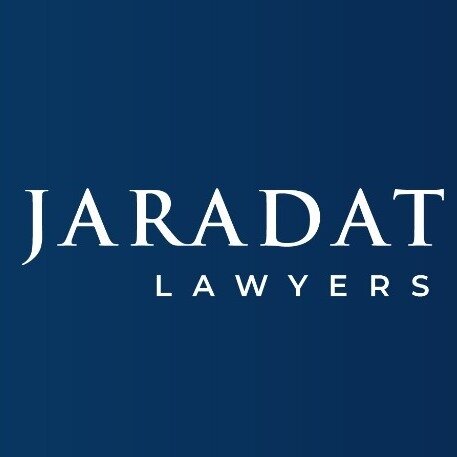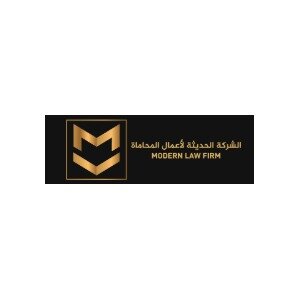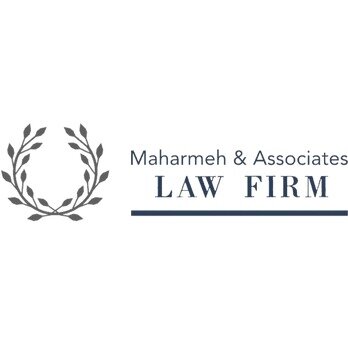Best Mining Law Lawyers in Hashemite Kingdom of Jordan
Share your needs with us, get contacted by law firms.
Free. Takes 2 min.
Or refine your search by selecting a city:
List of the best lawyers in Hashemite Kingdom of Jordan
About Mining Law in Hashemite Kingdom of Jordan
Mining Law in the Hashemite Kingdom of Jordan governs the exploration, extraction, development, and utilization of mineral resources within Jordan's territory. This specialized area of law is intended to regulate mining operations while promoting economic growth, protecting the environment, and ensuring the sustainable use of the country’s natural resources. The principal legal frameworks are established through national laws, governmental regulations, and oversight from relevant ministries. The mining sector in Jordan is notable for extracting phosphates, potash, industrial rocks, and construction materials, all subject to state regulation and specific legal procedures.
Why You May Need a Lawyer
Engaging in mining activities can be complex, given the myriad of regulations and potential legal challenges involved. Here are some common situations where legal assistance is essential:
- Securing and renewing mining licenses and permits from governmental bodies
- Negotiating and drafting mining contracts, joint ventures, or investment agreements
- Resolving land ownership and usage disputes that arise during exploration or mining operations
- Addressing issues related to environmental compliance and regulatory obligations
- Managing disputes with local authorities, other miners, or affected communities
- Advising on the import or export of mined resources, transportation, or customs regulations
- Handling labor, health, and safety regulations for employees in mining operations
A lawyer with expertise in Jordan’s mining law can help you navigate these and other challenges, mitigating risks and ensuring compliance with local legislation.
Local Laws Overview
Mining activities in Jordan are primarily regulated by the Mining Law No. 12 of 2010 and the Natural Resources Law. These frameworks are supplemented by regulations established by the Ministry of Energy and Mineral Resources and other relevant authorities. Key aspects include:
- Licensing and Permits - Companies or individuals must obtain licenses for prospecting, exploring, and exploiting mines. The process involves detailed applications, environmental studies, and compliance with technical requirements.
- Types of Minerals - The law classifies minerals into different categories, each with its licensing procedure. Major minerals include phosphates, potash, cement raw materials, and decorative stones.
- State Ownership - Mineral resources are considered public property. The state reserves the right to manage, exploit, or delegate rights to third parties under strict regulatory supervision.
- Environmental Protection - Mining operations are subject to environmental impact assessments. Measures must be taken to minimize land degradation, pollution, and ensure restoration after mining activities.
- Royalties and Fees - Operators are required to pay royalties and fees to the government, calculated based on the value of extracted minerals and other criteria specified by law.
- Health and Safety - There are strict requirements regarding occupational health and safety of workers, as well as public safety in and around mining sites.
- Dispute Resolution - The law outlines procedures for resolving disputes related to mining rights, including administrative remedies and, when necessary, recourse to the courts.
Frequently Asked Questions
What is the main law governing mining in Jordan?
The primary legislative framework is the Mining Law No. 12 of 2010, which sets out the requirements for obtaining exploration and exploitation licenses, environmental protection measures, and state control over minerals.
Who owns the mineral resources in Jordan?
All minerals and mineral resources are owned by the state. Individuals and companies can only exploit mineral resources under license from the government.
How do I apply for a mining license?
Applicants must submit detailed applications to the Ministry of Energy and Mineral Resources, including technical, financial, and environmental documents. The Ministry reviews the application and may conduct site inspections before issuing a license.
Can foreign investors conduct mining operations in Jordan?
Yes, foreign investors can participate in the mining sector, subject to specific legal requirements and regulatory approvals. Joint ventures with local entities are common.
What are the environmental requirements for mining projects?
Mining projects must undergo environmental impact assessments and submit mitigation plans to limit environmental damage. Regular monitoring and compliance with environmental standards are mandatory.
Are there restrictions on the export of minerals from Jordan?
Export of minerals is regulated and may require special permits or approvals from relevant authorities. Compliance with customs and export procedures is also required.
What taxes or royalties are payable on minerals?
Mining operations are subject to royalties and fees, calculated based on the type and volume or value of minerals extracted. Specific rates and taxes are stipulated by law and may be updated periodically.
What happens if a mining company violates regulatory requirements?
Penalties may include fines, suspension, or revocation of licenses, and, in severe cases, criminal prosecution. Environmental violations can also result in orders to restore damaged sites.
How are disputes over mining rights resolved?
Disputes may be addressed through administrative procedures, negotiation, or litigation in Jordanian courts. The law also provides mechanisms for resolving technical and contractual disputes.
Do small-scale miners need to comply with the same regulations as large companies?
Yes, all parties conducting mining activities must comply with national laws, although some specific requirements such as reporting or environmental obligations may be scaled based on the size and impact of the operation.
Additional Resources
If you require more information or assistance, consider reaching out to these resources:
- Ministry of Energy and Mineral Resources - The primary regulator for mining activities in Jordan, responsible for licensing, oversight, and policy direction.
- Naturals Resources Authority (NRA) - Engaged in the regulation, research, and development of the mining sector.
- Jordan Phosphate Mines Company and Arab Potash Company - Leading mining entities in Jordan, whose operations and practices may also serve as industry reference points.
- Local law firms specializing in mining or natural resources law - These can provide tailored legal advice and representation.
- Chambers of Commerce and Industry - Useful for networking and gaining insights into the business climate and compliance requirements.
Next Steps
If you are seeking legal advice or representation in mining law matters in Jordan, here are practical steps you should follow:
- Identify and consult a lawyer or law firm with expertise in Jordanian mining law.
- Prepare all relevant documents concerning your mining activities, such as licenses, contracts, and environmental reports.
- Review your legal obligations under current legislation and regulations with your legal advisor.
- Work collaboratively with relevant governmental bodies to ensure full compliance.
- If disputes or legal issues arise, seek early legal intervention to consider negotiation, mediation, or formal legal action if necessary.
Navigating mining law in Jordan requires careful attention to evolving regulations and administrative procedures. Professional legal support is crucial for protecting your interests and ensuring the sustainable and lawful operation of your mining ventures.
Lawzana helps you find the best lawyers and law firms in Hashemite Kingdom of Jordan through a curated and pre-screened list of qualified legal professionals. Our platform offers rankings and detailed profiles of attorneys and law firms, allowing you to compare based on practice areas, including Mining Law, experience, and client feedback.
Each profile includes a description of the firm's areas of practice, client reviews, team members and partners, year of establishment, spoken languages, office locations, contact information, social media presence, and any published articles or resources. Most firms on our platform speak English and are experienced in both local and international legal matters.
Get a quote from top-rated law firms in Hashemite Kingdom of Jordan — quickly, securely, and without unnecessary hassle.
Disclaimer:
The information provided on this page is for general informational purposes only and does not constitute legal advice. While we strive to ensure the accuracy and relevance of the content, legal information may change over time, and interpretations of the law can vary. You should always consult with a qualified legal professional for advice specific to your situation.
We disclaim all liability for actions taken or not taken based on the content of this page. If you believe any information is incorrect or outdated, please contact us, and we will review and update it where appropriate.
Browse mining law law firms by city in Hashemite Kingdom of Jordan
Refine your search by selecting a city.















